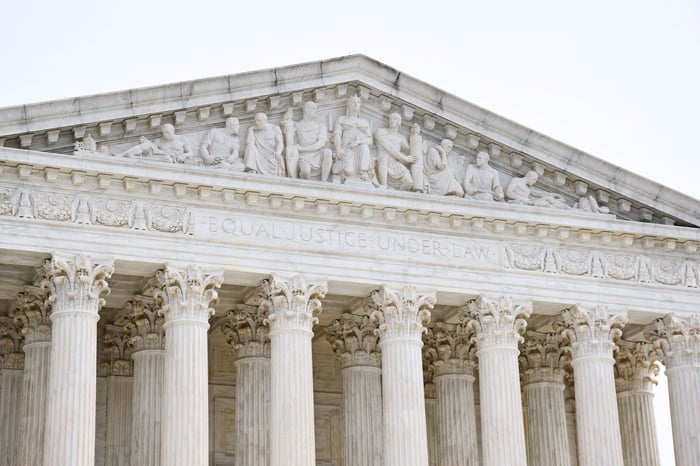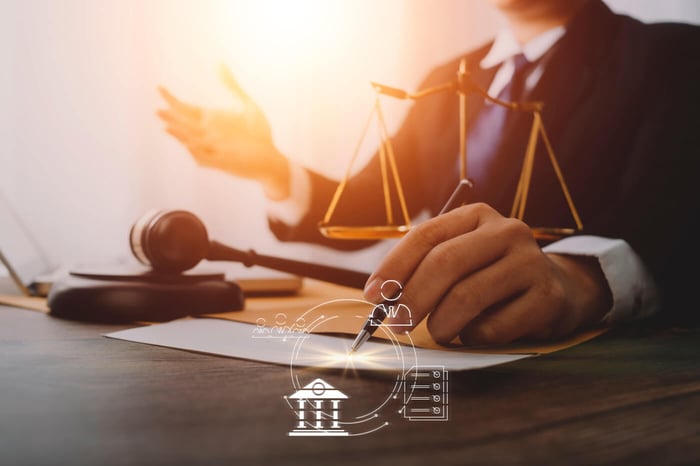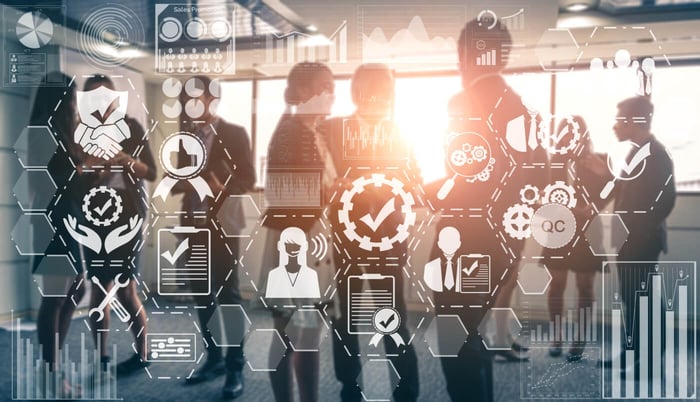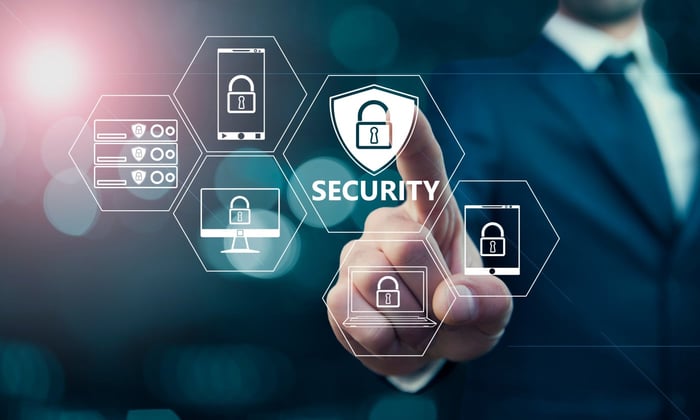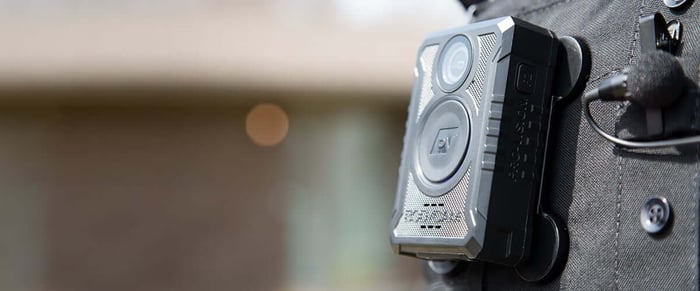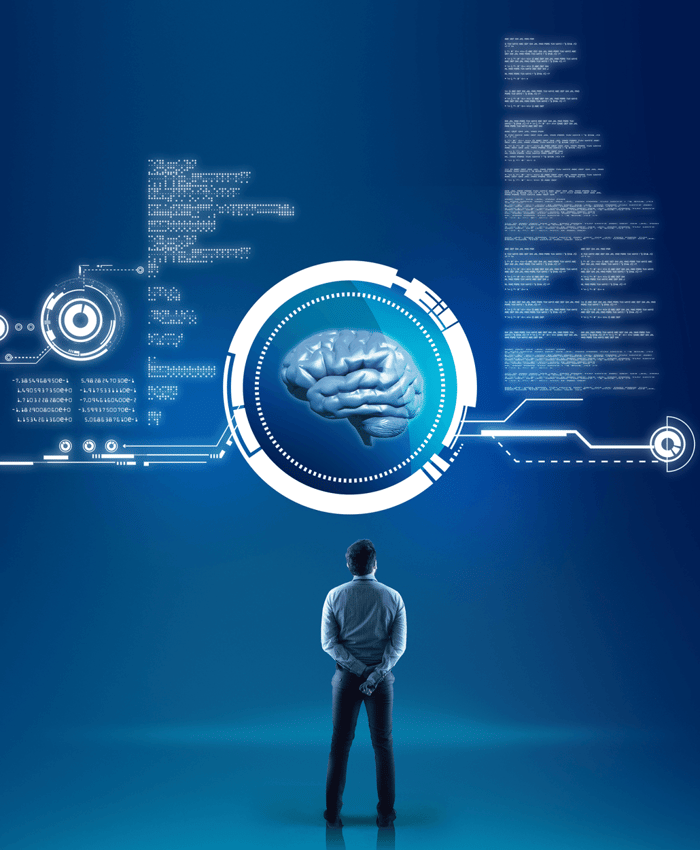Table of Contents
Introduction
In today’s legal landscape, audio and video recordings have become ubiquitous evidence. The U.S. Department of Justice estimates that over 80% of criminal cases involving indigent defendants include some form of audiovisual evidence [1]. From police bodycams and 911 calls to smartphone videos and surveillance footage, modern trials increasingly turn on what the camera or microphone captured. However, raw footage can be misleading – poor lighting, background noise, or questionable authenticity may obscure the truth [2]. An attorney who assumes that “seeing (or hearing) is believing” risks being blindsided by unclear or manipulated recordings. This is where a forensic audio/video expert becomes invaluable. Engaging such an expert at the right time can mean the difference between evidence that merely exists and evidence that actually persuades. This white paper explores what forensic audio and video experts do, when to involve them, and why early action is critical. It also provides real-world examples and highlights how Focal Forensics can support legal professionals in leveraging recorded evidence to its full potential.
What Do Forensic Audio/Video Experts Do?
Forensic audio and video experts are specialists who analyze, enhance, and authenticate recordings to ensure they are clear, credible, and court-ready [3] [4]. In practice, this means they apply scientific techniques and specialized software to address two primary concerns: clarity and authenticity. Below are key services these experts provide:
Enhancement of Recordings: Using advanced tools, forensic experts improve the intelligibility and quality of audio/video evidence. For audio, this can involve filtering out background noise and amplifying speech to make muffled dialogue understandable [5] [6]. For video, it may include adjusting brightness and contrast, stabilizing shaky footage, or zooming in on crucial details – all while respecting the technological limits (no “infinite zoom” magic, but significant improvements are often possible). In one example, a defense expert was able to “magnify and lighten key portions” of a grainy surveillance video and “clarify details, such as the presence of a gun,” turning a murky scene into compelling evidence [7]. These enhancement techniques ensure that judges and juries see and hear what actually happened, rather than being misled by poor-quality originals.
Authentication and Analysis: Forensic experts also verify whether a recording is genuine and untampered. This involves scrutinizing metadata, file properties, and acoustic or visual signatures to detect signs of editing or fabrication [8] [9]. If there are unexplained gaps, splices, or inconsistencies in a recording, a forensic analyst will find them. For instance, an expert can analyze the digital fingerprints of an audio file to determine if it’s an original from a device or an altered copy[3] [10]. In court, such authentication is often a prerequisite for admissibility – it “eliminates doubts of tampering or fabrication” and establishes the recording’s integrity [8]. Additionally, experts can recover hidden details (like timestamps or device info) and perform comparative analysis across multiple files or sources. In sum, they serve as the technical gatekeepers who certify that the evidence is both what it purports to be and as clear as possible.
Expert Testimony and Reporting: A forensic A/V expert doesn’t just work behind the scenes; they also translate their findings into courtroom-ready reports and sworn testimony. They document every step of their enhancement or authentication process and present conclusions in a way that judges and juries can understand. Often designated as expert witnesses, they can explain how a faint background voice was uncovered from a voicemail, or why a video has no signs of manipulation. Their involvement lends credibility to the evidence – a jury is more likely to trust an audio recording, for example, when a qualified expert has validated it as authentic and clarified its content [11] [12]. In high-stakes cases, such testimony can be decisive in admitting or refuting key evidence [13] [14].
By combining technical rigor with legal insight, forensic audio/video specialists ensure that multimedia evidence meets court standards for reliability. They act as both detectives and interpreters of digital evidence – retrieving data from devices, refining it for clarity, and presenting the truth behind the recordings. As one legal expert noted, “an experienced audio-video expert can enhance poor-quality video for clarity, analyze metadata to verify authenticity, identify signs of manipulation, and even reconstruct events frame-by-frame”[15]. In short, these experts arm attorneys with facts, not guesswork, when dealing with recorded evidence.
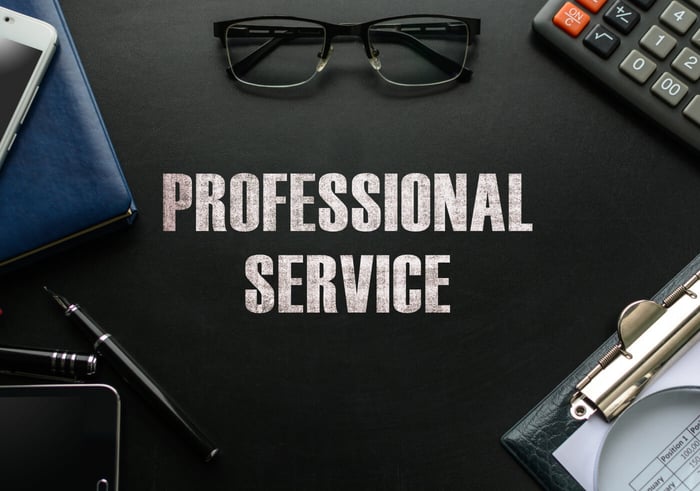
Common Scenarios Requiring Forensic Expertise
Not every piece of audio or video requires an expert, but certain scenarios call for forensic analysis as early as possible. Attorneys – whether trial lawyers, public defenders, or corporate counsel – should be alert to situations in which calling a forensic audio/video expert can make a critical difference. Below are some common legal scenarios where involving an expert is highly recommended:
Disputed or Tampered Recordings: If there is any allegation or suspicion that a recording has been edited, manipulated, or is not what it seems, an expert should be engaged immediately. For example, consider a phone recording presented as evidence in a contract dispute or criminal case – one party claims it’s authentic, the other insists it’s doctored. A forensic analyst can examine the file’s metadata and audio waveform to detect splices or anomalies, providing an objective determination of authenticity [3] [8]. In one case, a high school principal was implicated by a viral audio clip of him making offensive remarks. Only through forensic analysis did investigators prove the recording was a fake – experts traced its origin and confirmed it was fabricated by someone else [16]. Early expert involvement in such scenarios is crucial to preserve the original files and to issue any necessary subpoenas for data, as parties may attempt to destroy or alter evidence once a challenge is raised. By authenticating recordings (or revealing forgeries) early, attorneys can avoid wasting time on false evidence and prevent tainted material from swaying a judge or jury.
Poor-Quality Surveillance Footage or Audio: Many cases rely on surveillance videos (CCTV, dashcams, doorbell cameras) or incidental audio (911 calls, wiretaps) that are far from clear. Dark, blurry, or noisy recordings can hide critical details that determine guilt or liability [2]. Rather than accepting “bad” footage at face value, savvy lawyers bring in a forensic video/audio specialist to enhance it. For instance, a security camera video might not clearly show a suspect’s face or actions due to shadows or distance. An expert can often brighten and sharpen the video to reveal identifying features or previously unseen events. In a recent murder trial, a grainy night-time video left jurors unsure what transpired – until a forensic video expert enhanced the footage, revealing that the supposed “victim” was holding a firearm, which corroborated the defendant’s self-defense claim [7]. Likewise, in a drug conspiracy case, a muffled voice recording could contain exculpatory words; audio enhancement might bring those words to light. Any time you have an important recording that is hard to see or hear clearly, involve an expert early. They possess specialized tools (e.g. iZotope RX for audio, Adobe Premiere or Amped FIVE for video) and the know-how to make the most of marginal evidence. This ensures that critical details – a license plate number in a traffic camera video, a faint voice saying “don’t shoot” in a bodycam audio – are not missed by the trier of fact.
Deepfakes and Suspected Forgeries: The rise of artificial intelligence has enabled the creation of “deepfakes” – highly realistic fake videos or audio clips that can be nearly indistinguishable from real footage [17]. In litigation, deepfakes present a frightening scenario: a party could introduce a fabricated video of an opponent, or conversely accuse authentic evidence of being a deepfake. Attorneys must be prepared to confront this threat by calling in forensic experts. Digital forensics teams use advanced analytical techniques to identify subtle signs of deepfake generation (for example, anomalies in pixel patterns, inconsistencies in lighting or audio frequency artifacts). While detecting AI-generated fabrications is an evolving challenge, forensic experts are on the front lines of this battle [18]. In court, “litigants may need to hire digital forensics experts to identify and debunk deepfakes”, as one legal review noted [19]. This includes both offensive and defensive strategy: proving that a purported piece of evidence is fake, or affirming that your legitimate video has not been altered by AI. Bringing in experts early is essential, as deepfake allegations can significantly increase the complexity and cost of a case if not addressed head-on [20]. By proactively authenticating key recordings pre-trial, lawyers can neutralize deepfake-related claims before they derail the proceedings. In short, when dealing with any evidence in the digital age that “seems too outrageous or too incriminating to be true,” it’s wise to have a forensic analyst examine it.
High-Stakes or Complex Cases Involving A/V Evidence: Even when authenticity isn’t disputed or quality isn’t obviously poor, some cases simply involve voluminous or technically complex audio/video material. Major corporate litigation, for example, might include hours of recorded meetings or phone calls; criminal cases often have multiple surveillance videos from different angles. A forensic expert can assist by synchronizing and comparing video from different cameras, extracting pertinent segments, and reconstructing event timelines [9]. They also help manage and interpret large volumes of digital media, ensuring nothing critical is overlooked. Public defenders and prosecutors alike report spending enormous time manually reviewing bodycam and jail call recordings [21] [22] – a task that forensic technology (and expertise) can streamline. If an attorney is facing dozens of videos and audio files, an expert consultant can triage and enhance these materials efficiently, saving the legal team countless hours and focusing attention on the most relevant evidence. Essentially, whenever audio or video evidence will play a central role in a trial or negotiation, involving a forensic expert should be standard practice, not a last resort.
Why Early Involvement Matters
Engaging a forensic audio/video expert as early as possible in a case can profoundly impact the outcome. Conversely, waiting too long to bring in an expert can introduce serious risks. Below are key reasons why early expert involvement is critical, and the dangers of delay:
Preservation of Evidence: Digital evidence is fragile and time-sensitive. Surveillance systems overwrite old footage (sometimes in a matter of days), phone data can auto-delete or become inaccessible, and every copy or transfer of a file risks altering metadata. By involving an expert early, attorneys can ensure that original recordings are properly preserved in a forensically sound manner. For example, forensic specialists follow strict protocols to make bit-by-bit copies of data and compute hash values to verify integrity [23]. If you wait until the eve of trial to examine a video, it might have been copied in a lossy format or partially lost. Early engagement prevents spoliation of evidence and guards against the “oops, it’s been deleted” scenario [24]. As one forensics firm warns, “time-sensitive information can be overwritten… Don’t wait until evidence is challenged—be proactive.” In practical terms: the moment you suspect an audio or video recording could be important, secure it and get an expert to capture it correctly.
Chain of Custody and Admissibility: Establishing a clear chain of custody for audio/video evidence from the start is essential for admissibility in court. Any gap or question in how a recording was handled can lead to challenges by opposing counsel. In fact, a lack of proper chain-of-custody documentation can even overturn a conviction on appeal [25]. Forensic experts help by not only retrieving evidence but also documenting each step – when they received the media, how it was stored, who accessed it, etc. [26] [25]. By consulting an expert early, attorneys can develop an evidence collection plan that will hold up under scrutiny, avoiding scenarios where a critical piece of audio/video is excluded because its authenticity or source became murky. Early expert involvement also means the expert can advise on evidence handling best practices (for example, not playing an original DVR video on incompatible software that might alter it). This proactive approach strengthens the credibility of the evidence and heads off admissibility disputes. In short, involving an expert from the outset helps “bulletproof” your evidence.
Shaping Case Strategy and Discovery: Bringing in forensic expertise early in the discovery phase can directly inform legal strategy. An expert can quickly evaluate what useful information might be extracted from recordings, guiding attorneys on which files or devices to request in discovery. As one digital forensics firm notes, “Early engagement allows the expert to help shape discovery strategies, identify potential sources of electronically stored information (ESI), and ensure proper evidence preservation from the outset” [24]. For example, if a case involves an incident at a business, a forensic video expert might advise the attorney to obtain the original DVR hard drive rather than a simple video clip, because the hard drive could contain additional camera angles or log files. They might also flag data that requires quick action (e.g. obtaining cell phone location data before it’s overwritten by a carrier). By integrating experts in pre-litigation or early discovery, lawyers can issue more targeted subpoenas, ask sharper questions in depositions, and plan their case with full awareness of the digital evidence landscape [27] [28]. Conversely, if you delay involving experts, you might miss opportunities to gather key evidence or to confront the opposing side’s evidence effectively.
Preventing Trial by Ambush: Waiting until mid-trial to consult a forensic analyst often means playing catch-up. If the prosecution or opposing party presents a surprise video, a defense team that hasn’t preemptively vetted that evidence will be at a severe disadvantage. Early expert analysis can reveal if a recording has been misinterpreted or manipulated long before it’s shown to a jury. This enables counsel to counter with clarity or even get improperly altered evidence excluded. As the Chambers Law Firm advises, “if video or audio evidence plays a role in your case, don’t assume the footage speaks for itself” [29]. Law enforcement’s interpretation might be flawed, or a video might contain exonerating context that only careful review will uncover. By engaging an expert early, attorneys ensure they won’t be blindsided in court by technical claims about the evidence. Instead, they’ll be prepared with expert-backed analysis to challenge the opposition or bolster their own narrative [30]. In summary, early use of a forensic audio/video expert transforms recorded evidence from a wild card into a well-understood asset (or a neutralized threat), allowing lawyers to litigate from a position of strength.
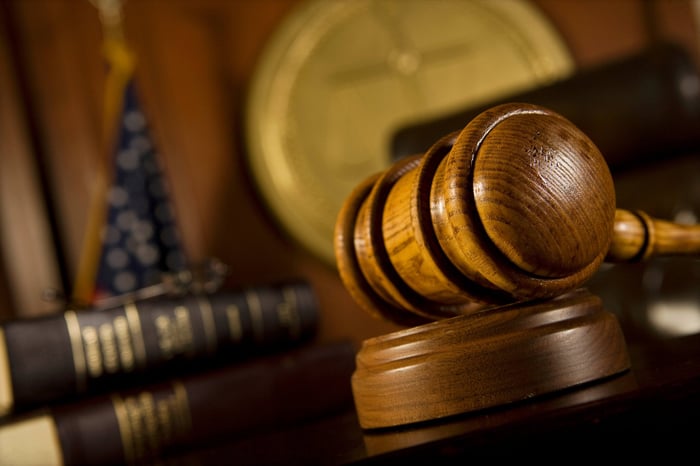
Case Studies: The Impact of Expert Involvement
To illustrate how forensic audio/video experts can tip the scales in legal matters, consider these brief examples drawn from real cases and common scenarios:
Self-Defense Proven Through Video Enhancement: In a homicide trial, the defendant claimed he acted in self-defense, but the only witness was a dimly-lit surveillance video from a nearby home. At first glance, the footage showed a confrontation but little detail. The defense wisely hired a forensic video expert early on. Using enhancement techniques, the expert brightened and zoomed the video and examined it frame-by-frame. The clarified footage revealed that the alleged “victim” had a firearm visible in his hand just before the altercation [31] [7]. This corroborated the defendant’s story that he was threatened. The expert then prepared a series of still images and an annotated video timeline to highlight the critical moments. In court, these visual aids helped the jury clearly see the gun and the timing of events, bolstering the self-defense argument. The defendant was acquitted, thanks in large part to evidence that only became clear after expert enhancement and analysis [32]. This case shows that what’s hidden in a grainy video can literally be a life-or-death detail – and only a forensic specialist had the tools to uncover it.
Exposing a Fake Audio Recording: In an employment-related lawsuit, a damaging voicemail recording surfaced in which a company executive allegedly made discriminatory remarks. The recording circulated online and threatened to ruin the executive’s career. The company’s legal team, suspecting something was off, engaged a forensic audio expert. Through careful authentication analysis, the expert discovered several red flags: the metadata didn’t match the executive’s phone, there were subtle discontinuities in the background hum, and an acoustic signature analysis suggested splicing. Digging deeper, the forensic team traced the audio file’s origin and found it was sent from a personal email account of a disgruntled former employee. In a scenario reminiscent of a case reported by the Illinois State Bar, “with help from two forensic analysts and a subpoena… police traced the recording to” someone attempting a malicious hoax [16]. When presented with the forensic findings, the plaintiff withdrew the fake audio and the court imposed sanctions for evidence fabrication. The expert’s early involvement not only saved the executive from a potential wrongful conviction in the court of public opinion, but also preserved the integrity of the litigation. This example underscores how calling a forensic expert at the first sign of a questionable recording can unravel fraud and protect clients from false evidence.
Clarifying a Collision with Multiple Videos: In a complex civil case arising from a highway accident, both parties pointed to video evidence to blame each other. The plaintiff had a dashcam video from their vehicle, while the defendant obtained roadside traffic camera footage of the same incident – yet they told very different stories. To make sense of it, a forensic video analyst was hired to synchronize and analyze the two videos. By aligning timecodes and using video analysis software, the expert created a split-screen playback showing both angles simultaneously, helping visualize the full sequence of events. She also performed a frame-by-frame review at the moment of impact and noticed a third vehicle’s headlights in the distance that neither party had mentioned. This prompted further investigation, leading to a witness who corroborated the plaintiff’s version. At trial, the expertly prepared video exhibit was instrumental in demonstrating liability. This case highlights the value of forensic experts in cases with multiple recordings or complex evidence – they can integrate and clarify disparate media sources into a coherent picture for the fact-finder. Without early expert involvement to combine the evidence, crucial details might have been missed or misinterpreted.
These scenarios (composite and anonymized from real-world situations) show how forensic audio/video experts bring facts to light and prevent costly mistakes. In each instance, the expert’s work early in the case either uncovered pivotal evidence or neutralized a deceptive piece of “evidence,” fundamentally altering the case strategy. The lesson for attorneys is clear: when recordings matter, get a qualified forensic expert on board sooner rather than later.
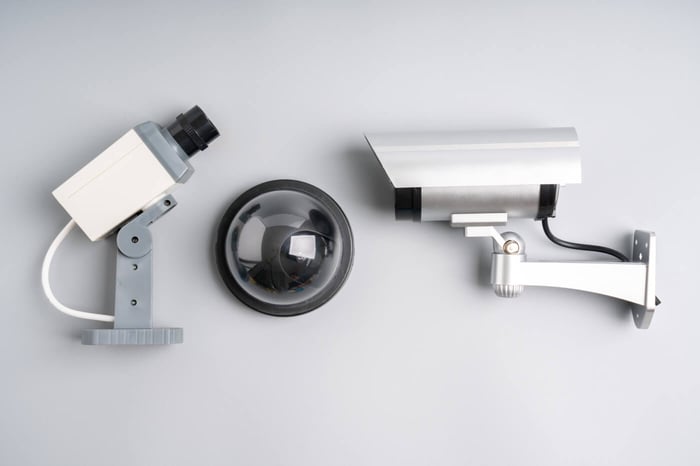
How Focal Forensics Can Support Attorneys
Engaging a reputable forensic services provider is key to reaping these benefits. Focal Forensics is one such leader in the field, offering specialized expertise to legal professionals. Headquartered in Colorado, Focal Forensics is an award-winning media forensics firm trusted by lawyers, law enforcement, private organizations, and more [33]. The company focuses exclusively on audio, video, and image forensics, handling everything from enhancement and authentication to redaction and expert testimony [33] [34]. With over 700 satisfied clients and more than 5,800 videos processed to date, Focal Forensics has a proven track record as a secure, trustworthy, and reliable partner for attorneys [33].
Services tailored for legal needs: Focal Forensics can step in at any stage of a case to assist with recorded evidence. Their team can perform audio enhancement to clarify muffled phone calls or body-cam audio, video enhancement to sharpen surveillance footage or correct playback issues, and thorough authentication analyses to confirm whether media files are original or edited. They are adept in handling proprietary formats (such as unusual CCTV files) and can recover data from damaged or partially erased recordings. Importantly, Focal Forensics experts also understand the courtroom context – they prepare detailed reports suitable for court and can serve as expert witnesses, explaining technical findings in plain language for judges and jurors. By working with a firm like Focal, attorneys gain access to specialized forensic tools and knowledgeable analysts who operate within legally defensible methodologies (maintaining chain of custody, using peer-reviewed techniques, etc.). This means any evidence processed by Focal Forensics will stand up to scrutiny from opposing experts or the court.
Collaboration and consultation: One of the advantages of involving Focal Forensics early is the consultative approach they take. They offer in-depth consultations to understand each client’s needs and will advise on the best course of action for handling audio/video evidence[35]. For example, if a public defender has a batch of police videos, Focal’s experts can help triage which clips likely contain valuable information and should be enhanced or transcribed first. If a corporate counsel is worried about a leaked video on social media, Focal can assess its authenticity and even help identify its source. Their experience spans criminal defense, civil litigation, corporate investigations, and beyond, so they appreciate the unique pressures attorneys face in each domain. Focal Forensics also stays current with emerging threats like deepfakes, continuously updating their technology and techniques to detect the latest forms of manipulation. When you partner with Focal, you gain not just a service provider but a strategic ally who can strengthen your case with expert insights and credible evidence handling [36] [37].
Finally, Focal Forensics emphasizes client service and quick turnaround, understanding that legal deadlines can be tight. They maintain a secure lab environment for sensitive data and prioritize confidentiality and professionalism in all engagements. In short, Focal Forensics is equipped to be the go-to forensic partner for attorneys who want to leverage audio/video evidence effectively. The firm’s combination of technical expertise and legal experience makes it well-suited to handle the most challenging media evidence issues that lawyers encounter.
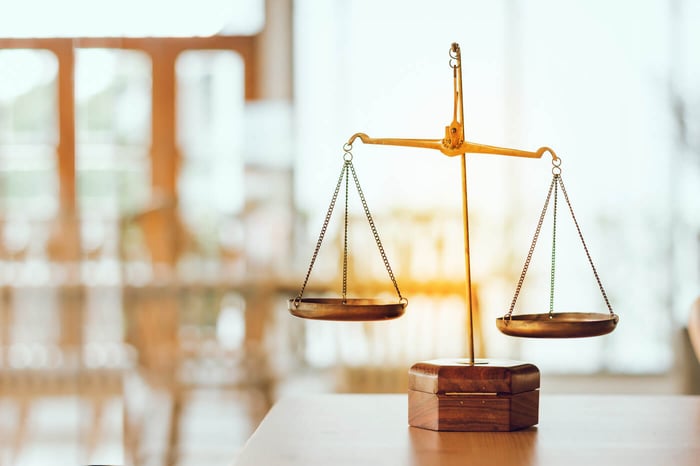
Conclusion and Call to Action
Audio and video evidence can be a double-edged sword in litigation – immensely powerful if properly handled, but potentially disastrous if misunderstood or left unexamined. The clear message is that calling a forensic audio/video expert early is often the wisest move when such evidence is in play. These experts bring clarity to the unclear, authenticity to the questioned, and context to the ambiguous. By doing so, they help attorneys build stronger cases, prevent mishaps, and ultimately achieve fairer outcomes. As we have seen, waiting too long to enlist expert help can lead to lost evidence, admissibility challenges, or even courtroom surprises that undermine a case. On the other hand, early expert involvement can shape discovery, bolster negotiating positions, and provide peace of mind that no stone has been left unturned with critical evidence.
Legal professionals reading this white paper are encouraged to take a proactive approach: assess your current cases for any recordings that might benefit from forensic scrutiny, and don’t hesitate to reach out to experts for an initial evaluation. In particular, Focal Forensics stands ready to assist attorneys in navigating the complexities of audio and video evidence. The team at Focal Forensics offers consultations to determine the needs of each case – whether it’s a quick enhancement of a 911 call or a comprehensive authentication analysis of a trove of digital files [35]. With their proven expertise and client-focused service, they can transform your audio/video evidence from a source of uncertainty into a litigation advantage.
When is the right time to call a forensic audio/video expert? The answer, invariably, is as soon as you think you might need one. Early collaboration with specialists like Focal Forensics can save you from evidentiary nightmares and provide the confidence that your case’s story – as told by the recordings – is the truthful story, clearly presented. To explore how forensic media experts can strengthen your next case, contact Focal Forensics for a consultation. Don’t wait until the critical recording in your case becomes a problem in court – get ahead of the issue by partnering with forensic experts who ensure that what the evidence shows is what the jury hears and sees.
[1] [21] [22] A look at how audio and video evidence is transforming public defense
https://justicetext.com/digital-evidence/
[2] [7] [9] [15] [29] [30] [31] [32] How Audio Video Experts Can Strengthen Your Criminal Defense Case - Chambers Law Firm
https://www.chamberslawfirmca.com/how-audio-video-experts-can-strengthen-your-criminal-defense-case/
[3] [4] [5] [6] [8] [10] [11] [12] [13] [14] Audio Forensics Expert Witness Services and Procedures
https://www.blueoceanglobaltech.com/blog/audio-forensics-expert-witness/
[16] [17] [18] [19] [20] Deepfakes in the Courtroom: Problems and Solutions | Illinois State Bar Association
https://www.isba.org/sections/bench/newsletter/2025/03/deepfakesinthecourtroomproblemsandsolutions
[23] [24] [25] [26] [27] [28] [37] Digital Forensics for Attorneys | Legal Case Support
https://bdforensics.com/who-we-serve/attorneys
[33] [34] [36] Focal Forensics Expert Witness - HGExperts.com
https://www.hgexperts.com/expert-witness/focal-forensics-168050
[35] [38] Access Focal Forensics Whitepaper - Forensic Audio, Video, and Image Experts
https://focalforensics.com/access-whitepaper
FAQs
What exactly does a forensic audio/video expert do?
A forensic audio/video expert analyzes, enhances, and authenticates recordings to determine clarity and credibility. They improve poor-quality media, verify authenticity, and prepare reports and testimony for court.
When should I involve a forensic expert in my case?
As early as possible. Immediate engagement ensures evidence is preserved, prevents spoliation, and allows experts to shape discovery and case strategy before trial.
Can forensic experts make a blurry video or noisy recording “perfect”?
No. While experts can significantly enhance recordings, they work within the scientific and technological limits of the media. They clarify details, not create new ones.
How do experts determine if a recording has been tampered with?
Through metadata analysis, waveform inspection, file structure review, and other authentication techniques that reveal edits, splices, or inconsistencies.
Are forensic enhancements admissible in court?
Yes, provided the enhancements follow accepted forensic practices and are properly documented. Experts explain their methodology so judges and juries can trust the evidence. The process needs to be repeatable and reproducible.
What kinds of cases typically benefit from forensic audio/video analysis?
Criminal defense, civil litigation, corporate disputes, employment cases, accident reconstruction, and any matter involving disputed or poor-quality recordings.
Can experts help with deepfakes?
Yes. Forensic analysts use advanced tools to detect subtle inconsistencies in AI-generated media and can validate whether a recording is genuine or fabricated.
How is chain of custody maintained for digital media?
Experts document every step of evidence handling, use forensic imaging techniques, and verify integrity through hashing. This ensures recordings remain admissible.
How quickly can Focal Forensics turn around a project?
Turnaround depends on complexity, but Focal Forensics is experienced in working under tight legal deadlines and prioritizes secure, professional, and timely service.
How do I engage Focal Forensics for my case?
You can schedule a consultation by calling 970-319-1148 or emailing us [email protected]. Early consultation helps tailor the best forensic strategy for your case.
